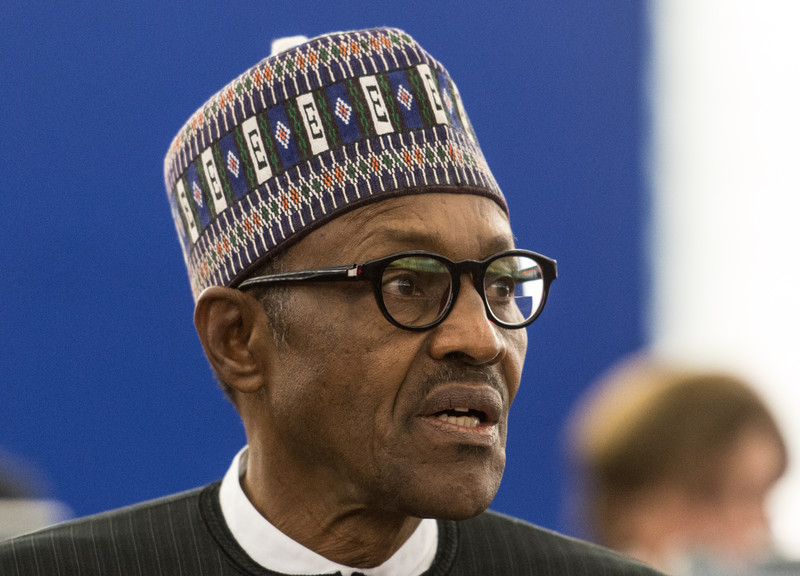The International Press Institute (IPI), a global network of editors, media executives and leading journalists for press freedom, joined its Nigerian National Committee in expressing concern over two cybercrime bills being considered in Nigeria targeting vague concepts of “hate speech”, “fake news” and misinformation.
The first bill, the National Commission for the Prohibition of Hate Speeches Bill, would set up a new administrative body to investigate hate speech online and identify perceived offenders. The body would then make a recommendation to the attorney-general, the Nigerian Human Rights Commission or “other relevant bodies” regarding sanctions.
It would also have the power to publicly blacklist offenders, such as individual journalists, commentators or media organizations, that it deems to have committed offences. The head of the Commission and its 12 commissioners would be recommended by the National Council of State, approved by Nigeria’s president, and then voted in by the National Assembly with a two-thirds majority.
Section 4 of the bill defines “hate speech” as “threatening, abusive or insulting” words or behaviour which is aimed at stirring up ethnic hatred. However, this ambiguous language and broad scope leaves it open to wide and multiple interpretations and possible misuse against media.
Punishments for those convicted are also extremely punitive. Under section 4(2), the bill states that individuals found to have committed an offence could face life imprisonment. Media organizations found to have published threatening or offensive material could also face financial penalties of up to 10 million Nigerian naira (around 24,860 euros).
Meanwhile, a second bill, The Protection from Internet Falsehood and Manipulation Bill, would censor and criminalize statements on social media deemed “likely to be prejudicial to the security of Nigeria, public safety, tranquillity, public finances and friendly relations of Nigeria with other countries”.
Journalists would also be liable if they are found to have “diminished public confidence” in Nigeria’s government. Supporters of the bill have stated it is aimed at addressing “the menace of fake news and falsehoods in media broadcast and transmissions”.
Penalties would also include hefty fines, prison sentences, or both. Law enforcement agencies would also be handed the power to order internet service providers to shut down social media, while regulators would also be empowered to impose bans on internet access for journalists or bloggers deemed to be spreading misinformation or “fake news” which risks public safety and security.
“We are seriously alarmed about the threat that these bills pose to media freedom, freedom of expression and open public debate in Nigeria, especially in the online space, which plays a key role in the sharing of information in Nigeria”, IPI Director of Advocacy Ravi R. Prasad said. “The use of vague concepts without clear definitions combined with draconian penalties are out of step with international standards on freedom of expression. These measures lack necessary safeguards to ensure they will not be used to silence critical views and voices.”
“We echo the concern expressed by IPI’s Nigerian National Committee about these bills, which should not be passed until they fully align with the requirements of international human rights law and have been amended to reflect the concerns of Nigerian civil society.”
Wider deterioration of media freedom
The government has stressed that the two bills are aimed at more forcefully regulating the country’s internet and social media landscape to stem an increase in online hate speech and ethnic discrimination, which it argues pose major risks for peace and stability in a country of more than 190 million people and 30 millionsocial media users.
But the latest proposals are facing strong criticism within the country, where rights groups and free speech activists have raised serious concerns that the vague definitions of the two bills mean they could potentially be used to gag the press and criminalize criticism of the of the Buhari government.
To make things worse, the concerns come against a backdrop of a deterioration of press freedom in Nigeria in recent months caused by a pattern of arrests, the heavy-handed use of existing state security, terrorism, cybersecurity, and defamation laws against critical journalists.
In October, IPI documented the use of these laws against independent journalists in 2019, highlighting a worrying pattern of arrests of reporters covering issues such as alleged corruption, state security and terrorism.
An anti-hate-speech bill similar to the current proposal was thrown out in June 2019 after strong criticism. However, it was reintroduced in the Senate in November. The first draft included the death penalty by hanging as the maximum punishment for offenders. This clause was removed after a major public outcry.
Meanwhile, a bill to regulate social media was considered in 2015 but that, too, had failed to pass into law after similar public pushback. It also reappeared and last month and passed its second reading in the Senate, bringing it even closer to becoming law.
